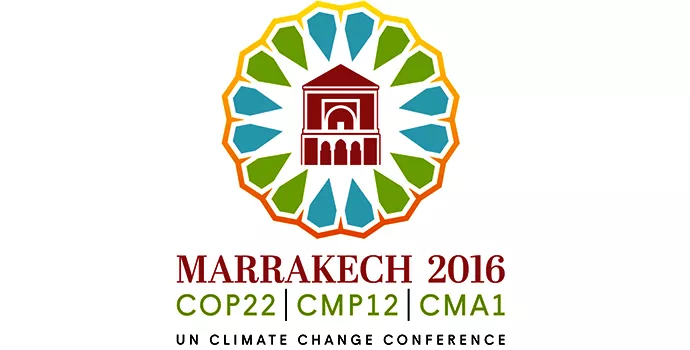COP22-Marrakech: Leaders, experts urge more action on climate change-induced droughts in Middle East, North Africa
Leaders and experts from international, regional and national research, development and donor organizations today called for stepping up efforts on drought management and mitigation in the Middle East and North Africa (MENA) region in the face of climate change.
As climate change is increasingly affecting rainfall and temperatures, drier regions like the MENA are faced with a growing problem of feeding more people under the least favorable conditions for agricultural production. Water resources, already under great pressure in these areas, will become more stressed particularly under drought conditions, undermining efforts to ensure food and water security, and agricultural sustainability.
Identifying ways and actions to cope with this problem was the focus of a joint high-level side event “Climate Resilience for Agriculture: Drought Management in Middle East and North Africa (MENA) Region” at the 22nd Session of the Conference of Parties (COP22) of the United Nations Framework Convention on Climate Change (UNFCC), in Marrakech, Morocco.
“Addressing the impacts of climate change on the agriculture sector is imperative, especially in the MENA region, which is particularly vulnerable to drought,” His Excellency Dr. Thani Ahmed Al Zeyoudi, UAE Minister of Climate Change and Environment, said during opening remarks at the event. “We need to work collectively to boost efforts in science and innovation, which will in turn enhance climate resilience in agriculture and help us to better manage our growing food demand and ensure long-term food security.”
Organized by the International Center for Biosaline Agriculture (ICBA), the Islamic Development Bank (IsDB), the Ministry of Climate Change and Environment (MoCCaE) of the United Arab Emirates (UAE), and the Association of International Research and Development Centers for Agriculture (AIRCA), the event brought together leaders, scientists and experts from MoCCaE, the United States Agency for International Development (USAID), IsDB, the National Meteorological Department of Morocco, ICBA and the Ministry of Agriculture of Morocco.
Participants reflected on how national and regional drought management programs can help governments to be better prepared for drought effects and design measures to mitigate them. In particular discussions focused on the current status of drought management and monitoring across the MENA; technology transfer, specifically drought monitoring systems; and recommendations for drought management initiatives in the region.
As the MENA region has the lowest level of renewable water resources per capita and the highest proportion of water withdrawals, compared with other major regions of the world, it will profoundly benefit from better drought management and monitoring programs that can inform national policies concerning water allocation and management.
Speaking at the event, Dr. Ismahane Elouafi, Director General of ICBA, said: “Climate change is a reality and 2016 was proclaimed the hottest year since humankind started keeping records. There is a need to make a paradigm shift in drought management from responding to crisis to a new risk-management approach that emphasizes early warning systems and development and adoption of drought policies that provide the farmers with a viable business model, even in the dry years.”
In response to increasing drought risks, ICBA has been leading a USAID-funded drought management program called MAWRED since 2009 to develop and improve climate, water and crop models more adapted to the conditions of the region and generate more accurate data to support decision-making at different levels, from farm to national and regional. In 2015 ICBA, USAID, FAO and the University of Nebraska - Lincoln joined forces to set up drought management systems at the regional (MENA RDMS) and country levels. This effort is aimed at achieving three primary goals. First, it will help to establish regional and national drought monitoring and early warning systems. Second, it will provide assessments of drought vulnerabilities and impacts. Third, it will support development of preparedness plans for responding to and mitigating the effects of drought.
This initiative at ICBA brings in combined expertise to deliver new insights, management plans and drought resilience strategies at the national and local levels that will reduce drought impacts on food supply and on the quantity and safety of water supply in vulnerable communities.
This work is designed to contribute to the UN Sustainable Development Goal 13, which calls for urgent action to combat climate change and its impacts.
With predicted increases in drought in some of the world’s major crop production areas, including those in the MENA, it is important that the challenges and possibilities are explored to support water and food security initiatives.
COP22, which began on November 7, brings together over 190 countries to discuss issues related to climate change and initiate preparations to implement the Paris accord. COP22 concludes on November 18, 2016.
